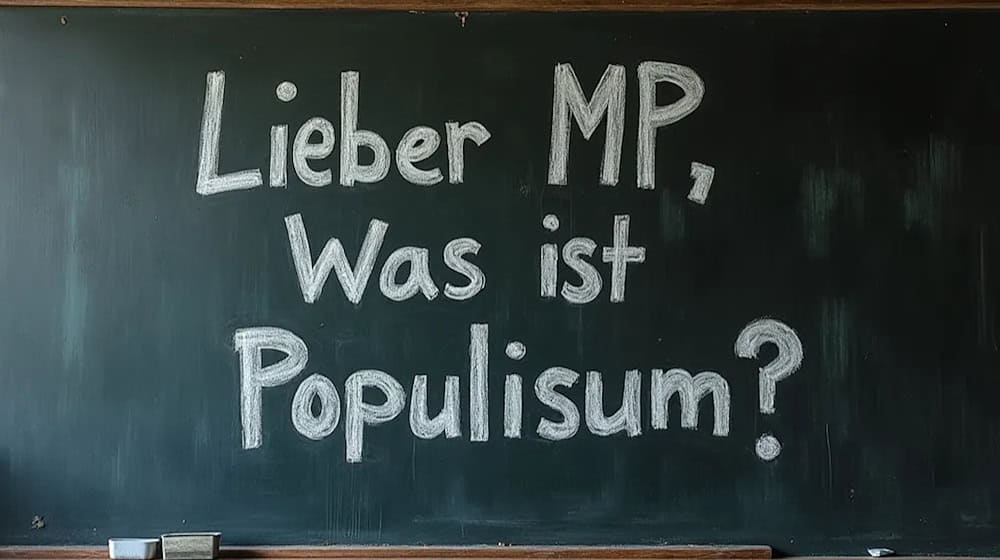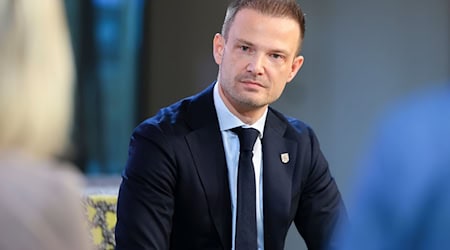Michael Kretschmer, Saxony's Minister President and CDU state chairman, has outlined his views on current political issues and the upcoming elections in Saxony in an interview with the Bild newspaper. In doing so, he used a number of rhetorical devices that can be associated with populist communication. This article analyzes Kretschmer's rhetoric using the five specific characteristics of populism: ad hominem attack, false dichotomy, motte-and-bailey argument, appeal to the 'silent majority' and straw man argument.
The aim is to identify the populist elements in Kretschmer's statements and assess their influence on the political debate.
You can find the interview at: Michael Kretschmer on the Saxony election, AfD-Höcke, the Greens and the citizen's income | BILD TALK (August 11, 2024) and the five characteristics of populism at https://populismus.online from the show MaiThinkX - "Wie populistische Politiker uns verarschen".
Ad-hominem attack
An ad-hominem attack aims to attack the opponent personally in order to discredit their arguments instead of dealing with the arguments themselves objectively. In this interview, Kretschmer does not directly attack political opponents personally. Instead, he chooses a more subtle approach by dismissing his opponents' policies as "ideological" and "unrealistic", especially when talking about the Greens: "The Greens [...] are simply ideologically banging their heads against the wall all the time." This accusation that the Greens are exclusively ideologically driven and ignore reality is a typical example of ad-hominem rhetoric that questions the credibility of the Greens without addressing their concrete arguments.
Intensity rating: Moderate. Kretschmer avoids direct personal attacks, but uses pejorative terms to undermine the credibility of his political opponents.
False dichotomy / False dilemma
A false dichotomy is when complex issues are reduced to a choice between two extreme alternatives. Kretschmer uses this device by presenting the choice between the CDU and "Thuringian conditions" as the only possible options: "The CDU must become the strongest party [...] so that we don't end up with Thuringian conditions [...] chaos breaks out." This statement implies that any election other than the CDU would inevitably lead to chaos, which greatly simplifies the complexity of the political landscape and ignores alternative solutions.
Intensity rating: High. Kretschmer presents the choice between stability (CDU) and chaos (other parties) as the only options, which is a classic application of the false dichotomy.
Motte-and-Bailey argument
The Motte-and-Bailey argument describes a tactic in which a controversial argument is weakened when it encounters opposition in order to make it easier to defend. There is no clear example of this tactic in the interview, as Michael Kretschmer remains relatively consistent in his statements on energy policy. He clearly criticizes the phase-out of nuclear power and does not deviate from this position, but rather calls for a new edition of the energy transition. Therefore, no motte-and-bailey tactics can be identified in this context.
Intensity rating: Not present. Kretschmer sticks to his criticism and does not adapt his argument to make it easier to defend.
An appeal to the 'silent majority'
Populists often refer to a "silent majority" that is supposedly not being heard sufficiently and whose interests they represent. Kretschmer does this by repeatedly emphasizing that a large majority of the population shares his views: "[...] the vast majority of this country of people who are still open, now understand [...]" With this statement, he suggests that his positions reflect the true will of the people, while his political opponents ignore this will.
Intensity rating: High. The appeal to a "silent majority" is used several times to portray Kretschmer's positions as the legitimate representation of the general population.
Strohmann argument
A straw man argument occurs when an opponent's position is distorted to make it easier to attack. Kretschmer uses this technique when he accuses the Greens of shaping German energy policy exclusively ideologically and ignoring the needs of the country: "This is not about the country, this is not about the people, this is only about what you have ideologically decided to do." This portrayal simplifies and distorts the position of the Greens by reducing their complex political goals to an allegedly purely ideological stance.
Rating of intensity: High. Kretschmer uses the straw man argument to portray the Greens as unrealistic ideologues without adequately reflecting their actual political arguments.
Conclusion
In his interview with the Bild newspaper, Michael Kretschmer uses various populist rhetorical devices to strengthen his political positions and delegitimize his opponents. The analysis shows that he makes particularly intensive use of the false dichotomy, the appeal to the "silent majority" and the straw man argument to convey his political messages. In contrast to other populist means, however, Kretschmer refrains from using the motte-and-bailey tactic, as he remains consistent in his statements, particularly on energy policy, and does not make any weakening backpedals.
Although he largely avoids direct personal attacks (ad hominem), he does use more subtle forms of discrediting. Overall, Kretschmer's rhetoric shows a high degree of populist communication, which can have both a mobilizing and polarizing effect in the political debate.
This analysis underlines the importance of critical engagement with political discourse, especially when populist rhetoric is used to simplify complex issues and polarize the political landscape.
Landtagswahl in Sachsen 2024
In conclusion, the current election campaign of all politicians is unfortunately often characterized by rhetoric that contains populist elements, but as always deserves a differentiated view. Michael Kretschmar was just one example for this analysis, as he is the current Minister President of Saxony and one of the leading candidates in the state election in Saxony. This analysis would also have been possible with many other politicians.
Therefore, check, consider, think - that is now up to you - the voters. Happy Saxony elections.
PS: yes, there is a spelling mistake in the picture. As we all know, money for education has never hurt 😏




